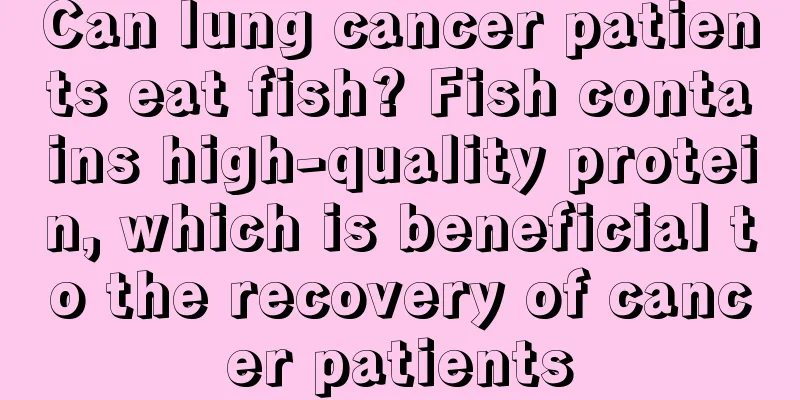What's going on when a child has a fever and vomits?

|
Children have weaker physical functions and their incompletely developed bodies can easily lead to illness if they are not careful. The most common ones are cold and fever. Many parents also know that children are prone to vomiting when they have a fever. In fact, there is no need to worry too much. This is also equivalent to a complication of fever. Because the sick child's body is disrupted and the functions of various organs are disordered, vomiting will be caused. So what is the specific reason? 1. Gastrointestinal cold. When children's respiratory tract is infected by a virus, they will experience nausea and vomiting, and in severe cases, they will be accompanied by diarrhea, abdominal pain, etc. 2. Throat irritation. After respiratory tract infection, the throat is infected, with redness, swelling, secretions, and coughing. If vomiting occurs after coughing, it should be considered to be caused by irritation of the throat. 3. Fever causes intestinal dysfunction. After fever, gastrointestinal motility slows down, the effect of digestive enzymes decreases, the baby suffers from indigestion, abdominal bloating, and is prone to vomiting. Nursing methods for children with fever and vomiting 1. Replenish water. If you feel chilly and shivering, you can add a little more clothes. If not, reduce the amount of clothes and quilts to let the heat evaporate naturally. Fever and vomiting can easily lead to dehydration. You can provide water in small amounts and multiple times depending on the baby's condition. 2. Bath with warm water. Wipe the whole body with water slightly higher than body temperature or soak it or use an ice pillow, but do not wipe it with alcohol, because it is more irritating and causes shivering, blood vessel constriction, and the body temperature will rise. 3. Eat a light diet. When vomiting is severe, do not rush to give too much food. It is best to feed water first. After the vomiting improves, give light, easily digestible liquid food, and then transition to a normal diet. 3. When the abdomen is bloated, the mother needs to help the baby exercise appropriately, change the baby's sleeping position, or hold him up and pat his back to help expel gas. 4. Take medication as directed by your doctor. Antipyretic drugs can be given according to the doctor's instructions. Do not shorten the medication time or increase the dosage without authorization just because the fever has not subsided. 5. Seek medical attention if the condition is serious. If you experience cramps, unconsciousness, severe vomiting, diarrhea, difficulty breathing, abdominal tenderness and hardness, headache, stiff neck, etc., you may have other complications and must seek medical attention immediately. Understand the reasons for your baby's vomiting and fever, and provide good care for him to avoid worsening the condition. Mothers should try their best to relieve their baby's vomiting and help the baby reduce fever as soon as possible. |
<<: What is the principle of human fever
>>: The secret to quick discoloration of semi-permanent eyebrows
Recommend
Is hair dryer treatment of frozen shoulder effective?
In fact, frozen shoulder can be treated with a ha...
What are the methods for diagnosing prostate cancer?
Everyone should know that the prostate is the mos...
Breaststroke for lumbar spine
Breaststroke has certain benefits for lumbar spon...
Can I do radiotherapy and chemotherapy after surgery for a grade 4 brain glioma?
It is recommended that biological immunotherapy c...
How to clean the hair inside the bird's nest
Although bird's nests have high nutritional v...
What are the hazards of air conditioning to the human body
Air conditioning is an indispensable household ap...
Mycoplasma infection
When it comes to diseases such as mycoplasma infe...
What are the methods of hand protection?
Hands are often used for doing things, so many pe...
What should I do if I feel pain after breast cancer surgery
What should I do if I feel pain after breast canc...
What to do if towels become hard after long use
In daily life, everyone needs to master some life...
Essential oils that help you sleep
There are many things that can help people fall a...
Is walnut a nut?
Walnuts belong to the category of nuts, most of w...
Is grapefruit cold?
Every winter, you will see all kinds of grapefrui...
How to relieve pain caused by spasm after bladder cancer surgery
My father had surgery on the 20th of last month, ...
What are the physical cooling methods for adults?
Fever is an extremely common disease. Generally, ...









